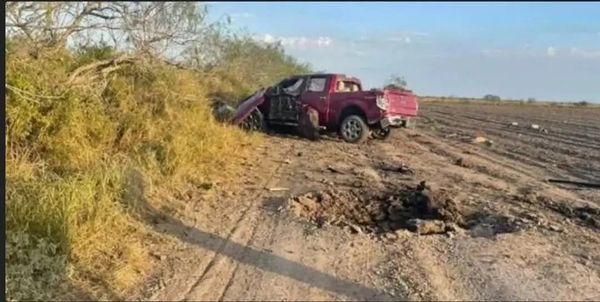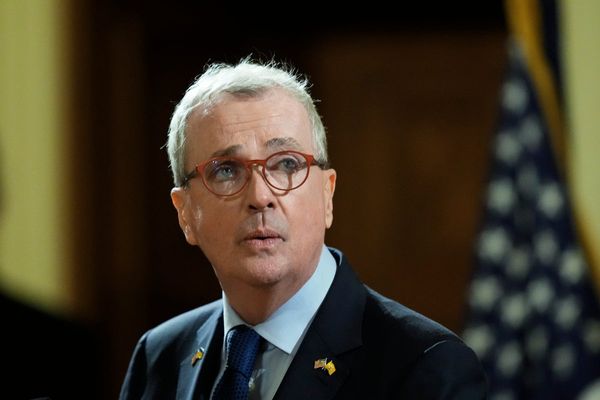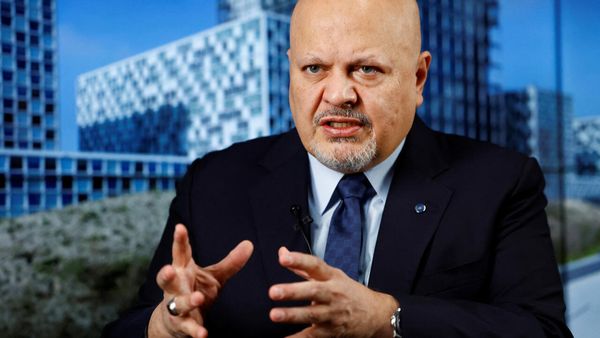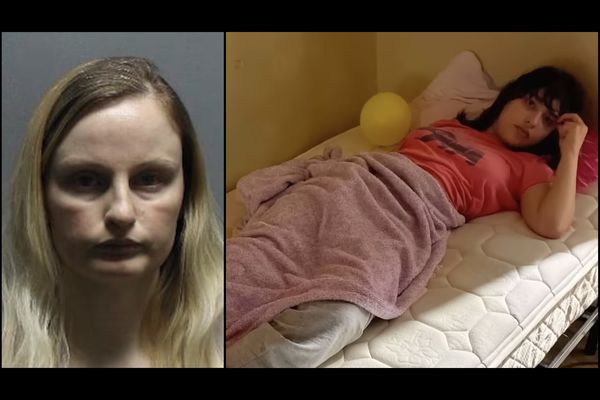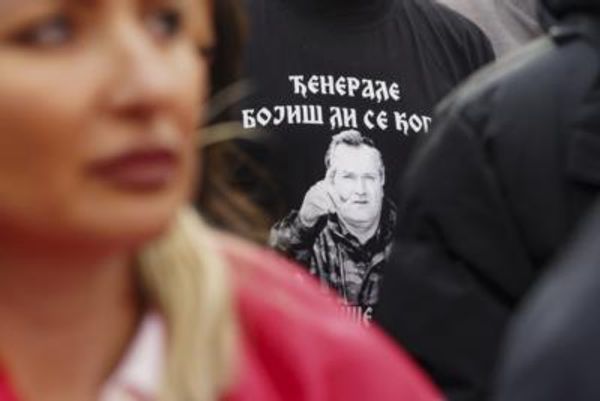On Saturday, Tasmanians Rachel and Duncan Lehmann-Ware were walking down the street in Ukraine's capital with a few possessions and "20 kilos of cat in a carry case".
It was a beautiful sunny day, with clear skies — except for the black smoke of war billowing over the city.
All through the previous night from their apartment in Pechersk — about 6 kilometres from the centre of Ukrainian capital, Kyiv — they had listened to the sounds of heavy fighting as the Russian invasion moved closer: machine gun fire, artillery shelling and air sirens.
Rachel and Duncan have been living in Ukraine since July 2021, but have not been back to Australia for three years.
Three weeks ago, Australia's Department of Foreign Affairs (DFAT) called, advising them to leave the country. But they had just been diagnosed with COVID-19 and were not allowed on any commercial flights.
"You almost heard the 'oh crap' in his [Duncan's] voice when I told him that," Ms Lehmann-Ware said.
As teachers at an international school, Rachel said they also felt some obligation to their students — with parents still turning up to parent-teacher meetings as recently as a week ago.
School basement becomes makeshift home
They went through a series of rapidly changing plans, including making a dash to meet friends at the Romanian border. But they were receiving conflicting information about how safe the drive would be, and how long it might take to cross once they arrived.
"[We heard] people are queued there for days, and the danger, the risk of being out in the open like that — I just couldn't do it. I'm terrified for the people who are there," Ms Lehmann-Ware says.
On Saturday morning, they fled their apartment opposite the military hospital and headed for their school instead, hunkering down in the basement.
"It really hit us yesterday what was happening … this tank rolled by slowly and we were on the side of the street with a bunch of Ukrainians and on top of the tank were about 30 young men — everyone cheered them on and waved," she said.
"I distinctly remember this one young man with beautiful dark hair and eyes, and I thought, 'I don't know if you'll be here tomorrow'. And he's someone's kid, someone's friend, boyfriend."
More than 160,000 Ukrainians have been forced to flee their homes following the Russian invasion, according to a new report from the United Nations.
Ms Lehmann-Ware spoke with the ABC from the school basement, which is now their makeshift home.
They are sharing the space with a Ukrainian colleague, his wife and their three teenage children, two security guards, their British boss and his cat, and their own three cats — Dexter, Sake, and Seren.
She said they had enough food and water for about a week.
Martial law has been declared in Ukraine, which is usually accompanied by curfews and the extension of military law to civilians.
"But I put my ear to the door, and I could hear gunfire outside … it's been getting closer. The last thing I heard was that the fighting had moved up to where our apartment is, about two metro stations away."
'Overwhelming' wait for family in Tasmania
Ms Lehmann-Ware said she was grateful to have mobile reception so she could remain in regular communication with her daughter and parents in Tasmania.
Ms Lehmann-Ware's 21-year-old daughter Alex said the uncertainty had been overwhelming.
"To know that they're stuck, and there's nothing we can do but just sit by and wait and hope, you're up in the night and you can't sleep because when they're awake you need to be sleeping but you don't want to lose contact with them ... it's just overwhelming," she said.
Paul Lehmann said stronger measures against Russian president Vladimir Putin were needed.
"I think he would have to be totally isolated, if the world got up on their back legs and said: 'We buy no gas, we buy no fuel, we cut them out of SWIFT, we close down their banking totally,' that's the only thing that would do it," he said.
Prime Minister Scott Morrison said Australia would contribute to arming Ukraine but he has not yet provided specifics — saying Australia would provide "whatever support we can for lethal aid through our NATO partners".
Foreign Minister Marise Payne said Australia had also joined with the US, UK and European Union in imposing sanctions on Mr Putin and Russian Foreign Minister Sergey Lavrov, which she described as an "exceptional" move.
'Why has it taken so long' for West to act?
Ms Lehmann-Ware said she wished governments around the world had moved faster.
"[I want them to] put a lot more pressure on the Russian Government and Putin … why has it taken so long for Ukrainian people to be dying and tanks rolling in and missiles going off and kids dying on the street, why has it taken this for them to actually start doing something?" she said.
Ms Lehmann-Ware said they have been in regular communication with DFAT, who advised them to seek shelter.
But she is desperate to come home to her family.
"Even if I had to teach online from Australia with the different timezones … And I might be pushing my luck, but if they could waive the quarantine for the cats, that would be awesome," she said.
While her sense of humour remains intact, Ms Lehmann-Ware holds grave fears for the safety of colleagues, friends and Ukrainian citizens.
For now, she said the basement was the safest place for them to be, with their Ukrainian colleague passing on information about the developments outside.
"It's this total uncertainty where you don't know what's going to happen in the next minute. We're trying not to live in fear, we're trying to rally together, be strong and keep each other company, but … I just don't know how it's going to end."
